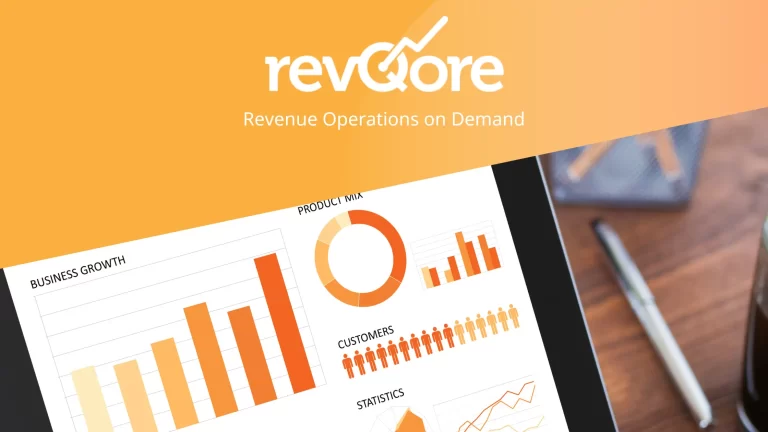Selecting the right CRM (Customer Relationship Management) system is critical for revenue growth, and it’s important that it meets the needs of the commercial team. The ideal CRM supports lead generation, sales process management, and customer relationship nurturing, all contributing to revenue growth. Equally important is the valuable data a business will gather – including insights into market coverage, the buyer journey, conversion rates, churn, and much more – all supporting decision-making and strategy building.
Here, we examine two major players: Salesforce and HubSpot. Each offers unique merits and limitations, making it challenging to find the best fit for your business. Team biases may play a part, depending on familiarity or brand preference, but the decision should be based on the system’s capabilities and its potential to scale your business.
HubSpot: Key Features and Benefits
HubSpot, with its roots in marketing, excels in supporting the top-of-the-funnel activities. It is recognised for its ease of use, particularly in managing marketing channels and assets. Its reporting is robust, covering areas such as customer acquisition, lead quality, and campaign attribution. The evolution of the Sales Hub allows sales teams to work efficiently within HubSpot, enabling businesses to combine marketing and sales processes in one system.
Salesforce: Key Features and Benefits
Salesforce is known for its comprehensive feature set, enhancing sales pipeline management, data insights, sales forecasting, sales processes, team collaboration and reporting & analytics. It excels in managing and analysing complex data to inform business decisions, perfecting sales strategies through analytics, and helping team collaboration for improved decision-making and revenue growth. Salesforce is highly customisable and can be tailored to specific business needs, with much of its functionality achievable through automation for efficiency and data integrity.
Which is Better?
Well, it depends… HubSpot is often favoured by small to mid-sized businesses for its user-friendliness and cost-effectiveness, offering an ecosystem that supports integrated business functions and revenue scaling. Salesforce, fundamentally an enterprise tool, offers a more complex setup with diverse tools for deep sales forecasting, advanced analytics, and extensive integrations.
However, Salesforce is also popular among smaller businesses, being regarded as a scalable and efficient solution.
Making the Right Choice
When deciding between HubSpot and Salesforce, consider these factors:
1. Company Size and Complexity: HubSpot is ideal for smaller to mid-sized businesses due to its ease of use, while Salesforce suits mid-sized to large enterprises needing a robust feature set.
2. Feature Set and Customization Needs: Salesforce is preferable for deep customization and a broad feature range. HubSpot is suitable for businesses requiring a straightforward solution with core functions.
3. Budget Constraints: HubSpot’s lower-cost options appeal to businesses with tighter budgets. Salesforce, more expensive, offers advanced functionalities that justify its cost.
4. CRM Capabilities: Both platforms offer robust CRM tools, but Salesforce supplies a more comprehensive set.
5. Ease of Use and Onboarding: HubSpot’s user-friendly interface and free training material make it easier for team adoption, while Salesforce may require more training due to its complexity.
6. Scalability: Salesforce is designed to scale with growing businesses, while HubSpot may have limitations for very large organisations.
7. Integration with Other Tools: Both platforms offer significant integration capabilities, with Salesforce’s AppExchange being vital for enterprises reliant on a vast tool ecosystem.
8. Reporting and Analytics: Salesforce excels in reporting and advanced analytics, essential for data-driven decision-making.
9. Sales and Marketing Alignment: HubSpot streamlines sales and marketing operations on a single platform, while Salesforce caters to larger teams and complex processes.
10. Customer Support and Community: Both offer strong support systems, but the type and level of support differ.
Your choice should be based on a careful assessment of your business’s specific needs, including operational scale, sales and marketing process sophistication, customisation requirements, integration needs, and available financial resources.
HubSpot is an excellent choice for those looking for an easy-to-use, all-in-one solution, suitable for businesses in early stages or scaling up, while Salesforce caters to both smaller customers and larger enterprises, offering a powerful, customisable CRM with extensive analytics and forecasting tools.
Need more help? Book a call with us for an unbiased recommendation, tailored to your business stage and needs. RevQore is a HubSpot and Salesforce Partner, here to help you in making the best decision.
